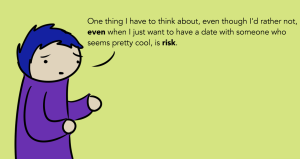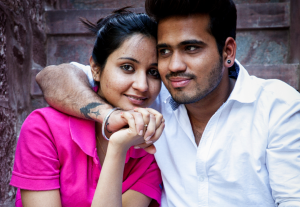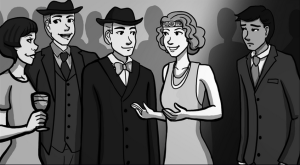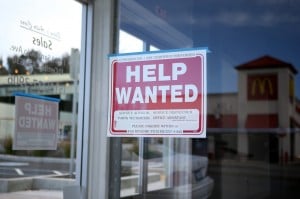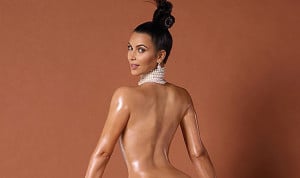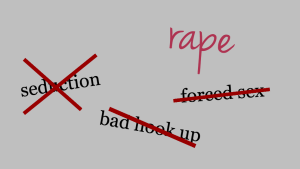“Most guys don’t really get feminism, so you can’t be too picky.”
I’m venting to a friend about a guy I’m newly dating and thinking of calling it quits with.
He’s doubtful that women really get objectified, thinks there’s a lack of women in tech partially because “men have better spatial reasoning,” and is surprised that I had a higher sex drive than my ex-boyfriend and never daydreamed about my future wedding decorations.
My friend’s response? I shouldn’t expect better, or I’ll be single forever.
Another friend said something similar when I told him about a date who thought that rape culture doesn’t exist and that men are just as disadvantaged as anyone else because they’re pressured to take the initiative in relationships. “Seems like splitting hairs,” he said.
These aren’t the only people to warn me not to “be too picky.” The advice is all over self-help books and dating blogs. And it’s constantly given specifically to women with high standards by well-meaning friends – which is why I’m writing about this group in this article, although other (especially marginalized) a/genders might also experience this phenomenon.
It was given to me by random people on Twitter when I wrote about my policy of only dating feminists.
“This special snowflake will be single for a long time,” someone wrote.
I’m so glad I didn’t listen to any of these people.
If I had stopped being picky and settled for one of those guys, I never would’ve met a partner who satisfies all my criteria and more. I would’ve always wondered if someone better for me was out there.
And even more importantly, I wouldn’t have had the crucial years I spent single, building my dream career.
This advice isn’t only given to women, but I’ve noticed it given to us disproportionately.
Here’s why that’s anti-feminist and counterproductive.
1. It Assumes That We Shouldn’t Be Single
“Don’t be too picky” has an implied “or else” at the end. Or else what, though?
Or else – the horror – you’d be single!
While we often understand and even praise men’s choice to eschew relationships for freedom or career advancement, single women and other a/genders remain stigmatized.
You’ll occasionally see articles celebrating the single life, but they’re usually presenting silver linings rather than acknowledging that singlehood is silver and gold in of itself.
It’s rare to see TV shows or movies that celebrate single women who aren’t trying to alter their relationship statuses.
Many still believe that if a woman is single, she’s looking to change that as soon as possible. We’re supposedly determined to get married and have kids by the time we reach 35, since our (ahem, cissexist) “biological clocks” are ticking.
So, when we’re iffy about a partner or date, some assume that ending up with them would still be preferable to singlehood.
Of course, not all of us are looking to have romantic relationships, get married, or have kids.
And those of us who are may still prefer singlehood to a relationship, marriage, or children with someone who makes us less happy than we are single.
There’s a concept in negotiations called a BATNA – Best Alternative to a Negotiated Agreement. If you don’t get the salary you want in a job offer, your BATNA could be to take another job that pays more.
My BATNA when I’m unsatisfied with a dating prospect has been singlehood. And my willingness to settle has been proportionate to how happy I am single.
I encourage people to cultivate fulfilling single lives so they don’t settle.
When you weigh dating someone you’re “meh” about against having a blast with your friends and living your dreams alone, there’s just no competition, despite what the tired narratives about sad spinsters would suggest.
2. It Assumes Some of Us Don’t Deserve Much
Certain marginalized people get told they’re too picky more than others.
Often, fat people, people of color, disabled people, working-class people, and those who are not considered conventionally attractive are taught to be thankful for whatever they can get.
For example, a person of color might get told that they’re lucky if a white person’s willing to date them – and should therefore put up with any racial microaggressions they commit against them.
Or a fat person may be told they can’t expect to find someone who turns them on because they’re supposedly unattractive themselves.
People give this advice based on the belief that there are leagues – with the most privileged at the top – and that people should date within their leagues.
It also stems from the notion that our oppressive beauty standards are objective, and therefore, certain people will be attractive to very few.
In reality, there’s no such thing as aiming too high, because nobody is higher than anyone.
A wide variety of people can be attractive, and those of us who want relationships and experience such attractions all deserve healthy connections with someone we’re attracted to, physically and emotionally.
3. It Excuses a Lot of Shitty Behavior
Women who date men get told they’re too picky especially often, since people have extremely low standards for men dating women.
Growing up, we’re taught that “boys only want one thing.” Later, it becomes “men are jerks.” The implication is that if you’re looking for someone who wants more than sex or isn’t a jerk, you’re being too picky.
As in my case, the “too picky” line often gets used regarding anti-feminist men. Since few men are feminists, the logic goes, you’ve just got to put up with ones who aren’t.
But while the first part of that statement may be true, it doesn’t support the second. My MO has been more like, “Since few men are feminists, be careful about who you date and don’t be afraid to stay single.”
It doesn’t matter to me how rare feminist men are. I need my partner to be one to maintain my mental health. I’m far better off alone than being constantly gaslighted about my experiences of oppression and treated as less than my partner.
Of course, if you’re determined to be in a relationship right this moment, you have the right to decide certain behaviors are worth settling for. But the fact that they’re common doesn’t make them okay – and doesn’t mean you have to tolerate them.
4. It Imposes Your Standards on Others
If you’re telling someone they’re being too picky, chances are you’ve deemed their partner suitable. But that’s like telling someone to eat your favorite food just because you like it.
It’s disempowering to decide what qualities someone should look for and avoid rather than help them figure out what they care about.
To the contrary, the best relationship advice a friend ever gave me was to forget about others’ standards and decide what I will and won’t tolerate.
At the time, I was trying to decide if I should break up with my boyfriend, and he was pretty awful. A few of my friends already hated him for insisting on eating the only food in the house when I was hungry.
“Well, I wouldn’t be okay with that,” my friend said. “But still, you have to draw the line.” For the first time, I realized I wasn’t okay with it either – and stopped debating whether it “objectively” was or wasn’t okay.
My other friends’ grounds for disliking my ex were pretty reasonable. But these judgments get more problematic when they’re made on the basis of things like appearance, culture, religion, class, or taste.
Deciding who is and isn’t right for someone else ties back to the idea that there are objective “leagues” in dating, with certain people more desirable than others – which usually replicates oppressive standards.
One person’s nit-picking is another’s pet peeve. And if they really can’t stand that thing, it’s a totally valid deal breaker.
***
“But what about people who actually are too picky?” you might be wondering.
Maybe such a thing exists, but nobody can decide what that means for someone else. Nobody knows how someone’s happiness in a particular relationship will compare to their happiness single.
For example, I used to be too picky about location. I had my OKCupid settings at “within 25 miles of me.”
But then, I realized this wasn’t actually important to me. I had just heard friends talk about how impossible long-distance relationships were, and I believed them without much thought. For me, though, they were doable.
I’ve heard others say they used to be too picky about appearance-related things like height, then ended up surprised by who they were attracted to.
But that doesn’t mean people don’t have the right to be picky about the qualities they’d like in an ideal partner.
What is and isn’t “too picky” depends on what’s important to you, and people can only decide what they themselves find important.
And telling people they’re being too picky doesn’t empower them to do that.
So instead, we can ask our friends to consider what they are and aren’t picky about. Then, they’ll be less likely to settle for people who aren’t worthwhile or cut out those who are.
[do_widget id=’text-101′]
Suzannah Weiss is a Contributing Writer for Everyday Feminism. She is a New York-based writer whose work has appeared in The Washington Post, Salon, Seventeen, BuzzFeed, The Huffington Post, Bustle, and more. She holds degrees in Gender and Sexuality Studies, Modern Culture and Media, and Cognitive Neuroscience from Brown University. You can follow her on Twitter @suzannahweiss. Read her articles here.
Search our 3000+ articles!
Read our articles about:
Our online racial justice training
Used by hundreds of universities, non-profits, and businesses.
Click to learn more






